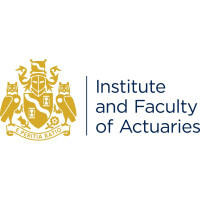“You don’t want to be an actuary” my friend (mis)informed me rather unhelpfully, after I’d decided I probably wanted to be an actuary. I’m still unsure what people make of the profession; some people say actuaries are dull, some seem impressed when they learn you’re an actuary, quite a few seem to think you’re loaded, and many aren’t really sure what you do.
“Actuary... that’s to do with dead people?”
“You’re thinking of a mortuary - I think that’s a room.”
“Ah yes. What do you do?”
I started working for the consultancy Barnett Waddingham in the insurance consulting team, after graduating from university, in September 2017 - specifically in the general insurance (GI) team, which means all insurance that isn’t life insurance. We help and advise insurance and reinsurance companies. Much of the work I am involved with is reserving and regulatory reporting, which involves:
The bits of work I tend to enjoy are not things I thought I would enjoy going into the profession - who really imagines rubbing their hands together with glee at the thought of diving back into their big book of regulatory formulas for calculating risk? But interpreting regulation is like solving a ‘whodunnit’ game. There is, supposedly, a correct answer, and you need to follow the trail of clues laid out in front of you, paying attention to small details that could materially* impact your final answer. What should the factor for economic effect equal in this formula? Who killed the doctor and where? The factor is 50%, due to the nature of the collateral agreement, and it was the professor with a candlestick in the library! I’m sure the parallels are clear. I should add I’ve not played Cluedo (other board games are available).
At university I studied maths, not unusual for an actuary, and didn’t have any actuarial ambitions until half way through my degree. I remember first coming across the term “actuary” when looking at job satisfaction polls, where it consistently ranks well. I’m not surprised. Especially compared to other friends I know in finance, my work is interesting and my work-life balance is good. It would be better without having to study for the actuarial exams, but the opportunity to learn a lot while your company covers the costs (including structured pay increases – Brucie Bonus) is a good deal, and you have time off on top of holiday to study for exams. Around forty “study days” a year is not unusual for a pre-qualified actuary – you quickly learn to take that time off for granted though!
If you have any comments, questions or suggestions, please email: [email protected]
*Actuaries love describing things as material or immaterial.
In this blog, John Townshill, Actuarial Consultant at Barnett Waddingham, discusses misinterpretations of becoming an actuary and things he’s enjoyed a year following on from university.
